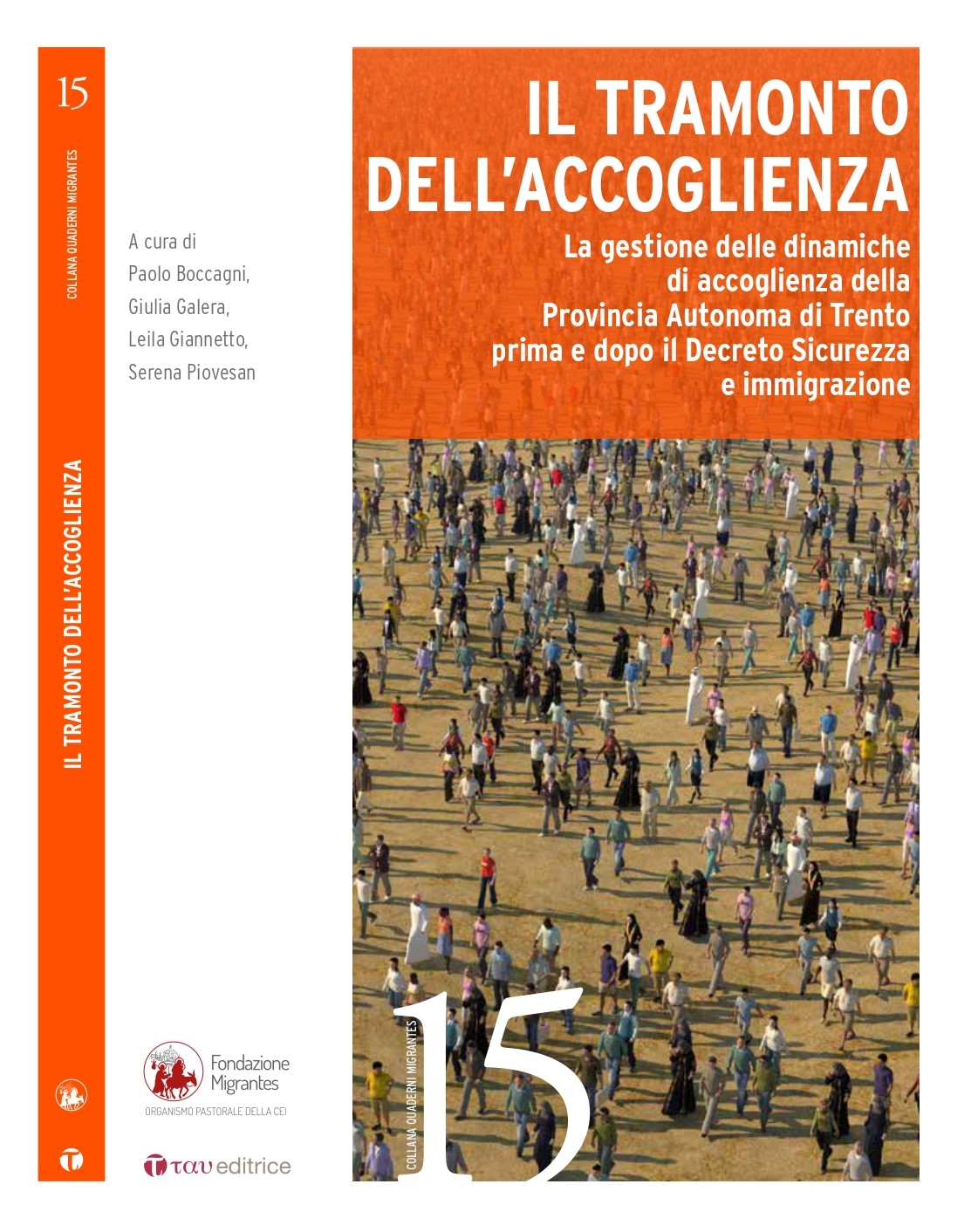The twilight of reception. The management of reception dynamics in the Autonomous Province of Trento before and after the Security and Immigration Decree.
Editor(s): Paolo Boccagni, Giulia Galera, Leila Giannetto, Serena Piovesan
The notebook reports the results of a research commissioned to Euricse by a network of Trentino entities composed of Arcobaleno SCS, Associazione Centro Astalli Trento Onlus, ATAS del Trentino, CGIL del Trentino, Kaleidoscopio SCS. The research starts from the need to investigate the impact of the reception system prepared in Trentino from an economic point of view and assess the effects of the changes introduced by the so-called “Security and Immigration Decree “1 in economic terms and possible risks for social cohesion.
In a national framework characterized by a reception system that tends to be deficient and under the banner of emergency, Trentino has distinguished itself by a different response: it established as early as 2001 an entity dedicated to the phenomenon of migration and reception called CINFORMI (Immigration Information Center).
CINFORMI still acts today as the operational arm of the Autonomous Province of Trento (PAT) to support the police headquarters in administrative procedures related to immigration and to ensure reception direction at the provincial level through close collaboration with a network of social cooperatives and other third sector entities. Interest in Trentino also stems from a second consideration: it is, in fact, the only Italian province in which there was a centralized and well-functioning reception system that was dismantled quickly and drastically. The rapidity with which the previous system was disrupted by the Security and Immigration Decree is due to two main factors: the centralization that characterizes the provincial system and the political conjuncture that turned the issue of reception into a battleground, marked at the end of 2018 by the election of the PAT’s monocolored (League) junta.
The research took the form of a quantitative-qualitative study based on data made available by CINFORMI and the statistical service of the Autonomous Province of Trento (ISPAT), two focus groups, and a series of interviews with operators from both the public and private social sectors. The quantitative analysis made it possible to estimate the economic impact of reception and made it possible to prepare a series of considerations on the economic consequences of nonaccommodation. In addition to highlighting a number of strengths of the Trentino pre-Security and Immigration Decree reception system, the interviews and focus groups revealed some concerns about the effects of the Decree on the reception system itself. This leads to questions about the meaning of a reform that, far from resulting in significant savings, is very likely to generate substantial economic and social costs in the medium and long term.

